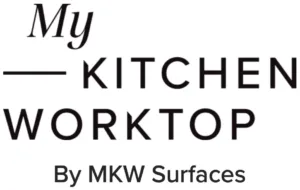Neolith worktops have revolutionized the surface industry forever. Nonetheless, as strong and resistant as these surfaces may be, they still require minimal care and maintenance on your part. Even the best performing materials can become prone to permanent stains, chipping, scratching or breaking if you are not minimally careful. So, here is a post on how to clean Neolith countertops, and a maintenance guide for the proper use and care of Neolith kitchen worktops.
How to Maintain Stone Worktops Made of Neolith
Neolith worktops are created with an insight into every desirable place that they can be used, which includes food preparation areas, coffee tables, dining tables, bathrooms, saunas, etc.
All Neolith kitchen worktops are very easy to clean, nothing penetrates this material, so food scraps or deposited waste fail to leave a stain, and it always guarantees a hygienic product. In most of the cases, the answer to the question “How to clean Neolith countertops?” involves using only a damp cloth. If you encounter a stain caused by food and other substances used in the kitchens, such as lemon juice, vinegar, olive oil, wine, coffee, these are easily removed.
Likewise, placing hot pots and pans does not discolour the surface either. If a damp cloth does not clean the marks initially found on your Neolith surfaces, try using a window cleaning spray which can be purchased at any major supermarket. This, combined with a kitchen towel should clean the marks and suit the daily maintenance regime for your Neolith kitchen worktops.
How to Clean Neolith Countertops
Take caution when using ceramic knives, which may scratch the surface. An authorized Neolith surfaces supplier, such as My Kitchen Worktop, should inform you of the proper care procedures.
To rid the surface of general stains, use only the suggested detergents. Some products may not be easily removed with a normal cleaning operation; specific procedures may be required depending on the severity of the stain. It also depends on other factors, such as the amount of time a substance has remained on the surface, because affected areas must be cleaned as soon as possible. Preventing stains from drying is usually the best course of action.
- If the type of stain is a rust/lime/cement/plaster/aluminium scratch, then use an acidic detergent.
- For a grease/oil/ink/coffee/epoxy glue/candle wax/resins/permanent marker stain, use a solvent.
- Use an oxidant for fruit juice/blood/iodine/ink.
Make Special Considerations with the Edges of your Neolith Woktop
It is the edges that require a special attention, and you must avoid heavy impacts around worktop edges that could induce chipping. It is always advisable to be aware of the places where worktop edges tend to chip the most: these are by the sink cut out and above the dishwasher, when taking pots and pans in-and-out of it. For some reason, once users are aware of the areas that are the most prone to chipping, the occurrences reduce by a large percentage.
Wondering how to clean a Neolith worktop made of porcelain? Use a clean, dry, absorbent cloth immediately after the spill on the surface.
- For stains that are set-in, pour warm water to loosen a stain and then remove it with a clean cloth.
- Use only soft fibre pad that is suitable to clean glass, kitchen appliance and non-stick frying pan.
Also, it is better to use cloths, pads, napkins and glass coasters to place cooking pots on Neolith kitchen worktops.
To avoid scratching, do not pull or drag kitchenware, pans and appliances. Also, refrain from cutting food directly on the worktop. Although Neolith does not scratch easily, heavy objects and industrial tools may damage it when impacted with sheer weight.
Recommended Cleaning Products for Neolith Kitchen Worktops
Suitable:
- Oven cleaners
- Degreasers
- Ammonia
- Solvents
Not suitable:
- Abrasive cleaners
- Abrasive sponges
- Bleach
- Ferrokit
- Hydrofluoric Acid
- Scrub Cleaning Creams (CIF brand)
Now that you know how to clean Neolith countertops properly, you can take a look at our selection in My Kitchen Worktop online shop. We are official suppliers of Neolith surfaces in the UK, so don’t hesitate to contact us if you have any doubts about this wonderful material.
Published by Jesus Alberto Mouzo on August 20, 2017









